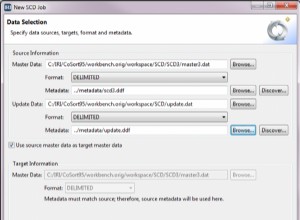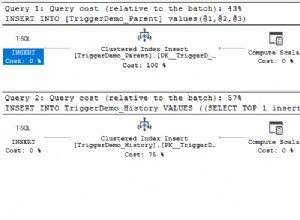To brzmi jak dobry przypadek użycia dla scipy CD , omówiono także tutaj .
import pandas as pd
from scipy.spatial.distance import cdist
data1 = {'Lat': pd.Series([50.6373473,50.63740441,50.63744285,50.63737839,50.6376054,50.6375896,50.6374239,50.6374404]),
'Lon': pd.Series([3.075029928,3.075068636,3.074951754,3.074913884,3.0750528,3.0751209,3.0750246,3.0749554]),
'Zone': pd.Series(['A','A','A','A','B','B','B','B'])}
data2 = {'Lat': pd.Series([50.6375524099,50.6375714407]),
'Lon': pd.Series([3.07507914474,3.07508201591])}
def closest_point(point, points):
""" Find closest point from a list of points. """
return points[cdist([point], points).argmin()]
def match_value(df, col1, x, col2):
""" Match value x from col1 row to value in col2. """
return df[df[col1] == x][col2].values[0]
df1 = pd.DataFrame(data1)
df2 = pd.DataFrame(data2)
df1['point'] = [(x, y) for x,y in zip(df1['Lat'], df1['Lon'])]
df2['point'] = [(x, y) for x,y in zip(df2['Lat'], df2['Lon'])]
df2['closest'] = [closest_point(x, list(df1['point'])) for x in df2['point']]
df2['zone'] = [match_value(df1, 'point', x, 'Zone') for x in df2['closest']]
print(df2)
# Lat Lon point closest zone
# 0 50.637552 3.075079 (50.6375524099, 3.07507914474) (50.6375896, 3.0751209) B
# 1 50.637571 3.075082 (50.6375714407, 3.07508201591) (50.6375896, 3.0751209) B




